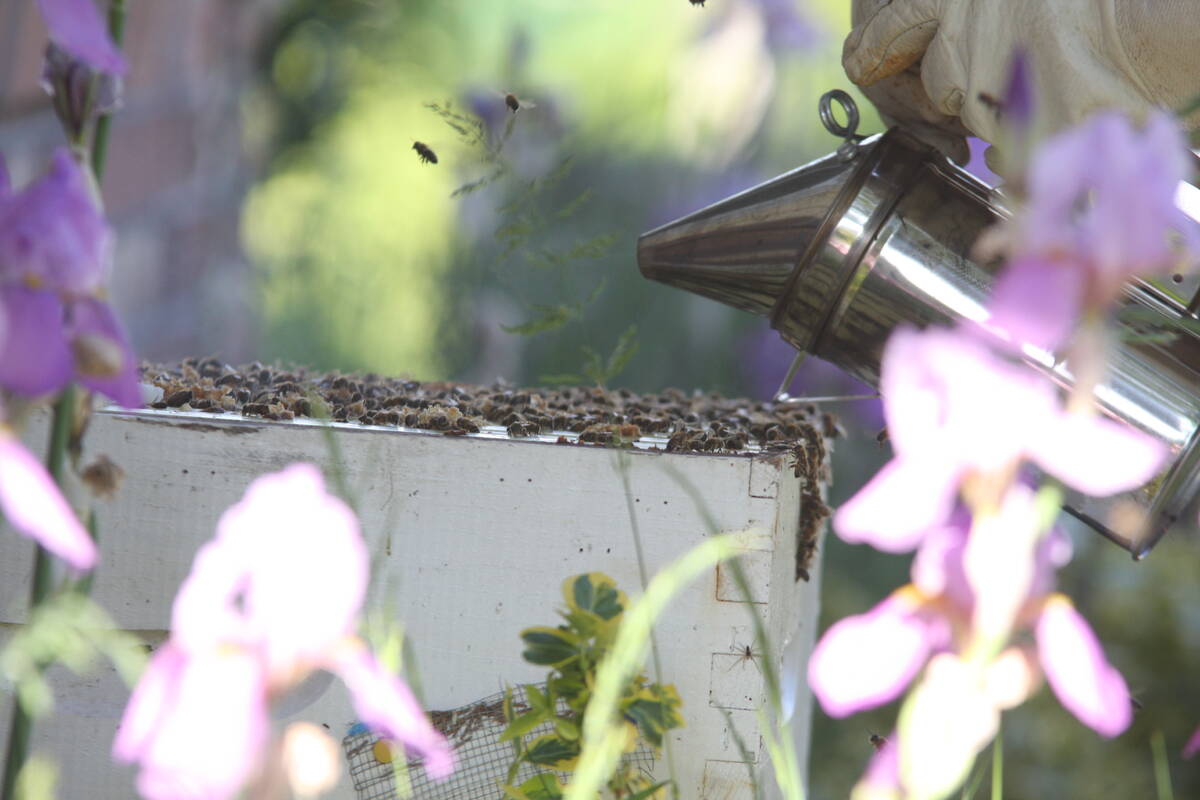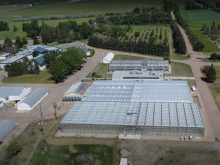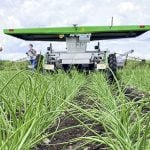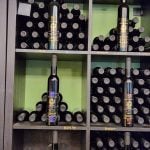Paul Trella of New Holland has watched his industry shift its fuel research focus from energy pumped from the earth to energy grown in the earth and now to energy from what surrounds the earth.
“Farmers have a long history of running their machinery on what they could afford and what was available to them,” says the tractor marketing executive from Pennsylvania.
“Diesel was the thing that was cheapest, most efficient and most abundant. And that might change in the future.”
Earlier this year, New Holland began attending European farm and energy shows with its nearly silent-running 106 horsepower, hydrogen fuel-cell-powered tractor dubbed the NH2.
Read Also

Manitoba beekeepers battle for survival
Honeybee colony losses have hit 43 per cent, making 2025 the latest in a string of poor bee survival years for Manitoba’s honey producers
The company is using the tractor as a research and public policy launch pad for a closed loop farm system that includes farm generated fuel from wind and solar sources.
Trella said the move to biofuel in diesel first prompted tractor manufacturers to experiment with fuel systems that were potentially home grown.
“The soybeans, canola or rapeseed grown on the farm generated the fuel that farmers burn to grow the crops,” he said.
“Fuel from deep fat fryers and other sources, recycled for other purposes, is something we can do now ….Alternative fuels (not from petroleum) are the next step and we’re working with universities like Penn State and Idaho on those. I think we’ll see hydrogen or something else further down the timeline.”
New Holland’s European project aims to develop a system that ends the food versus fuel debate by using wind generated electricity to create hydrogen that can run tractors and make anhydrous ammonia.
Researchers at North Dakota State University are working with an Agco Challenger tractor that is based on the closed loop strategy of wind generated hydrogen.
Bob Pieri of the university said more work is needed before it’s realistically possible to produce hydrogen and fuel farm machinery, but the technology holds promise.














